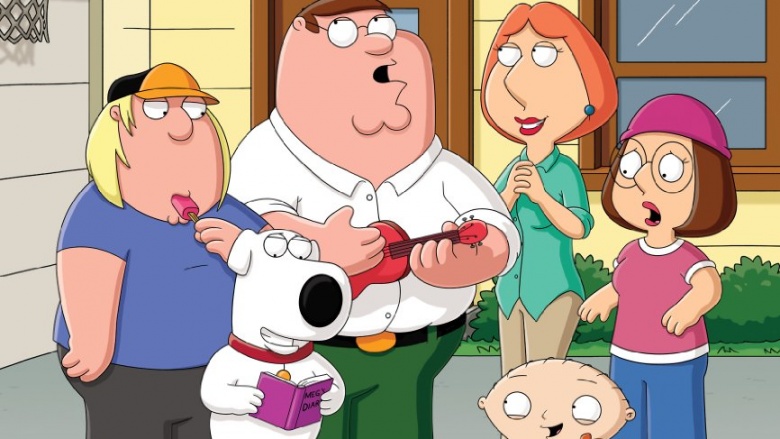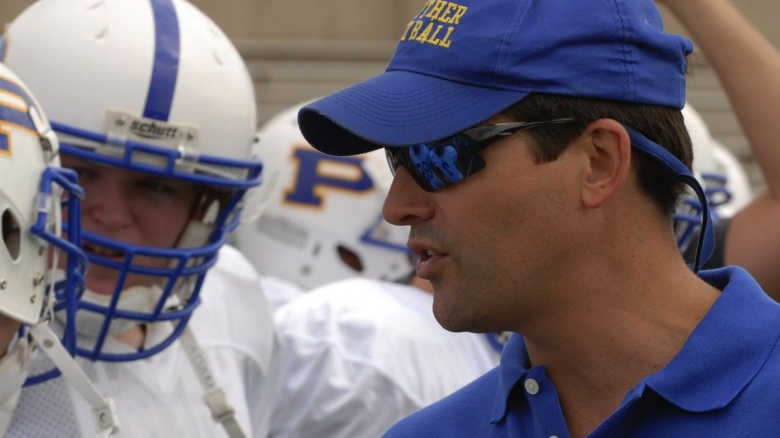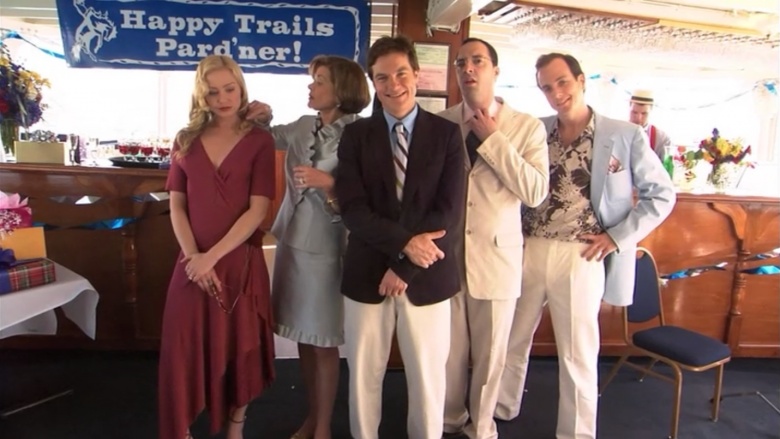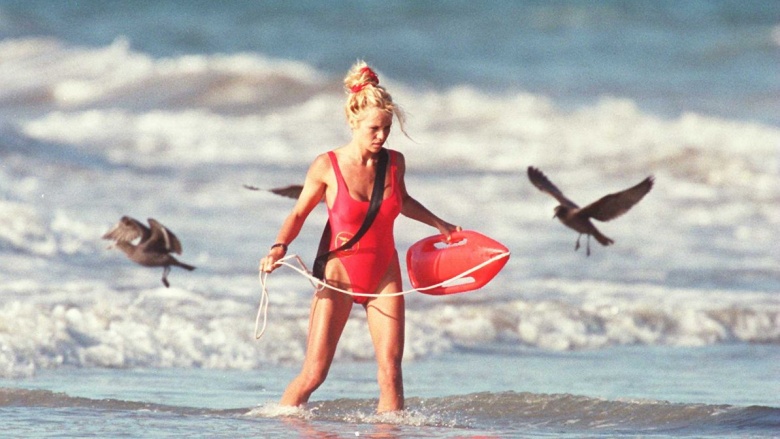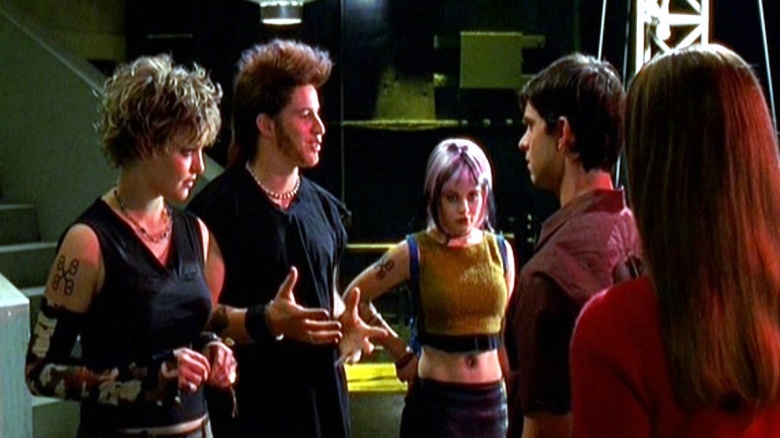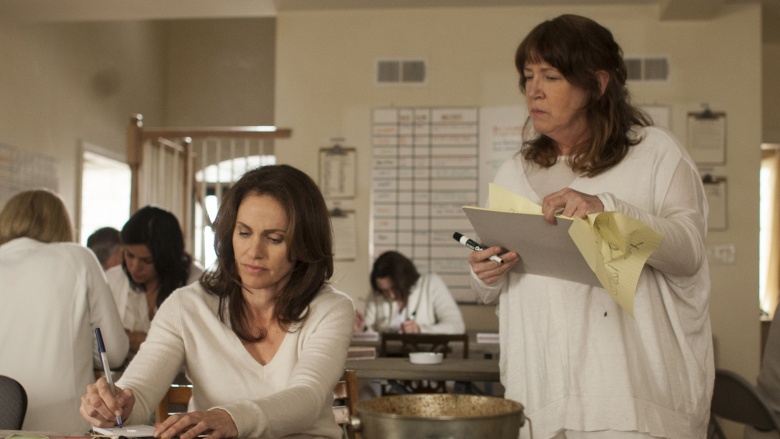TV Shows That Were So Close To Being Canceled
Television series often live and die by their early reception, and even some of the most revered programs of all have come this close to being tossed and lost thanks to poor initial ratings. Whether by the cleverness of their fans or just plain old luck of the draw, though, these shows ultimately survived being canceled...if only just barely.
Friends
Friends was almost not there for you. Co-creator David Crane recently explained to The Huffington Post that the show, which went on to run for 10 seasons and ranks as one of the most-watched programs in U.S. history, "didn't test very well" at first because it was considered to be geared towards a too-young audience, had too many sexual innuendos, and featured characters that were only moderately likable to test audiences. NBC viewed it as a lackluster effort but didn't have much else to fall back on for its fall schedule, and Crane and co-creator Marta Kauffman stood by their concept that "the show was always the six friends ... we were prepared to live or die by that."
Seinfeld
In another instance of NBC almost underestimating its TV gold reserves with a premature cancellation, the network reportedly only signed on for a four-episode order of what was then titled The Seinfeld Chronicles (as opposed to the 13 a show would ordinarily receive). Rick Ludwin, who headed up late-night programming for the network, ultimately convinced execs to produce four more episodes and rerun the pilot, which then received significantly higher ratings and justified ordering a second season. Seinfeld ultimately ran for nine seasons and was the most-watched TV show from 1994-95 and 1997-98. Its finale was watched by 76.3 million viewers, the fourth highest series finale broadcast in history.
Family Guy
Seth MacFarlane's raunchy cartoon comedy actually did get canceled after three seasons due to poor performance in 2002, but when rerun rights were scooped up by Cartoon Network for its Adult Swim programming block, an all-new level of fan fervor emerged in both viewership and DVD sales. Fox then decided to order 35 new episodes of the show as a result of renewed interest, and it returned with those new episodes starting in 2005 after three years of being off the original network's schedule. Family Guy is still a success and was recently renewed for its 17th season.
Chuck
The second season ratings on Chuck were far from ideal, so NBC considered cancelling the program until its impassioned fan base reached out to one of the series' primary advertisers, the Subway sandwich restaurant chain, with a "Save Chuck" campaign which sparked a sponsorship deal with the network to help cover costs for a third season. The show went on to run for five total seasons and ended in 2012.
Friday Night Lights
The story of Dillon, Texas' football programs with "clear eyes [and] full hearts" almost did lose after its second season ratings were low enough to justify its early cancellation on NBC. But just like the Panthers and their tirelessly devoted coach Eric Taylor, the network showed some serious heart by negotiating a deal with DirecTV to co-produce its third, fourth, and fifth seasons on DirecTV's 101 Network instead of cutting it altogether. The show is now a cult favorite and was a notable critical success, despite its less-than-ideal audience numbers.
Community
Despite its critical acclaim and a small but dedicated fan following, NBC's Community was dangerously close to being canceled in the middle of its third season, as the network put the show on hiatus with no return date mentioned in its promotional materials. Fans of the series eventually succeeded in pressing for a renewal of the show (although creator Dan Harmon did not return, after engaging in a social media spat with show star Chevy Chase), and it ran for two more seasons as NBC before being picked up by Yahoo! Screen to avoid yet another cancellation scare, finishing out its sixth season on the digital platform. The show did not return for a seventh season, but it has long boasted itself as a "six seasons and a movie" experience, so a feature film follow-up is still spinning in the rumor mill.
Arrested Development
In another instance of a series being rescued from its network's dust bin, Fox's Arrested Development was shelved after three seasons thanks to a ratings dip in the second season (which was trimmed from its original 22-episode order to just 18) and a continued decline in season three before it was ultimately canceled. But fans of the quirky comedy series made their hopes for more perfectly clear, leading to Netflix purchasing the rights and producing a highly touted fourth season for its own originals lineup in 2013; a fifth season followed in 2018.
Baywatch
Baywatch might have given some new cachet to those sexy but practical lifeguard uniforms and the profession at large, but the iconic '90s program was almost canceled after just one season. The show's original run from 1989-90 had poor ratings and was stung by the shutdown of its studio, but David Hasselhoff and the show's creators teamed up to revive the series for syndication. This second run proved to be remarkably successful in international markets and went on to run for 11 seasons, led to several spinoffs, and continues to remain in the zeitgeist; a film adaptation starring Dwayne "The Rock" Johnson hit theaters in May 2017.
Roswell
Aliens in teen disguise were apparently not all the rage in the late '90s, because this WB show was almost a one-season wonder after its first run fared poorly in the ratings. Fans of the show, however, stepped up and cleverly convinced the network to give it another chance by sending in bottles of Tabasco sauce (a wink to the characters' condiment of choice) and it was later renewed for a second season on the WB, finishing out its third season on sister station UPN.
The Leftovers
In another case of an original series' fan base pulling out all of the creative stops to get a network to greenlight another season, followers of HBO's critically-acclaimed but ratings-plagued drama series The Leftovers showed up at the network's headquarters in New York City dressed as the show's Guilty Remnant faction, a group of people who wear all white, chain smoke, and wordlessly picket events and people as a form of civil disobedience. HBO, citing their respect for such fan enthusiasm and commitment to creator Damon Lindelof's vision for closing out the series, renewed it for a third and final season which brought the story to its preordained conclusion.



